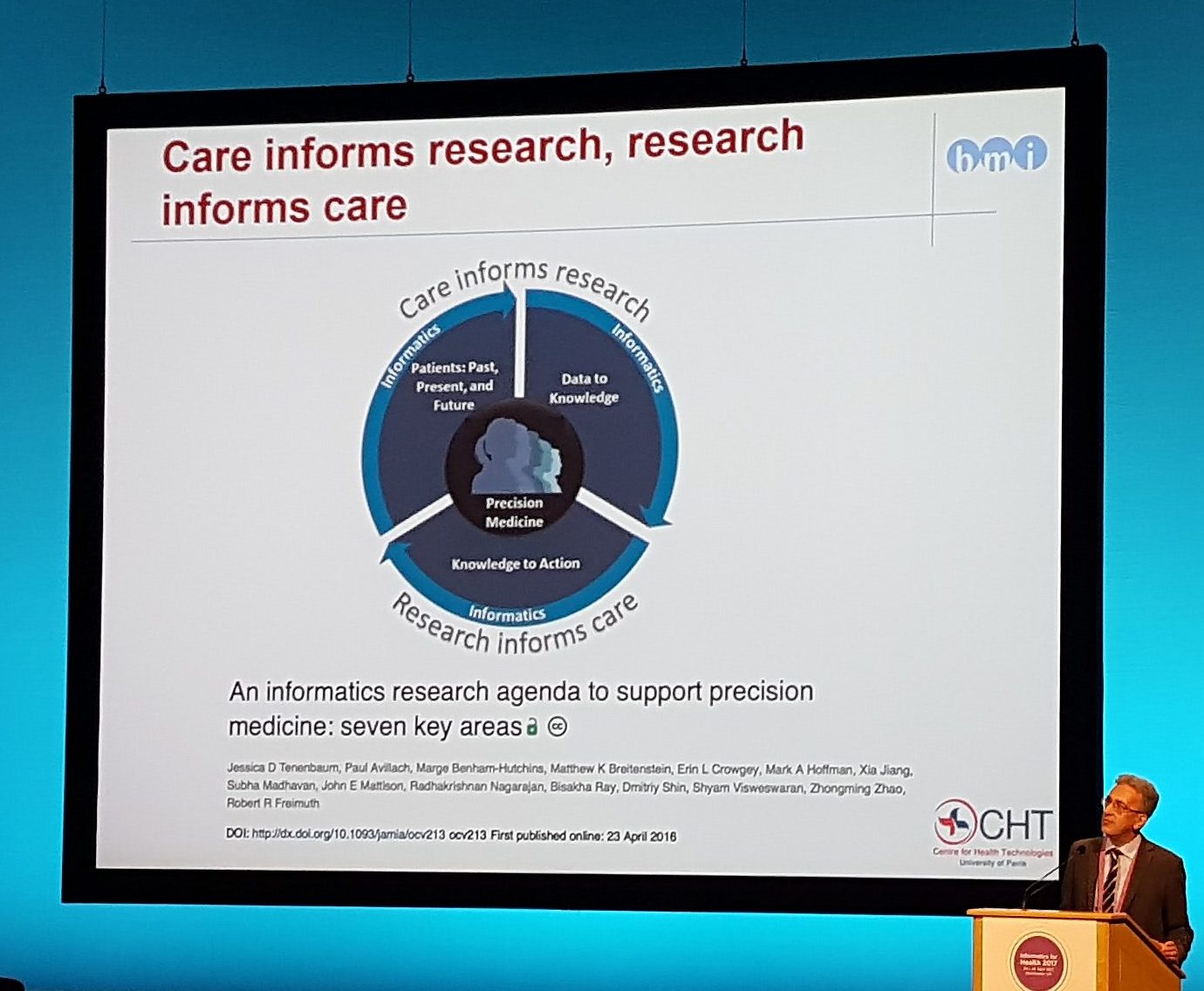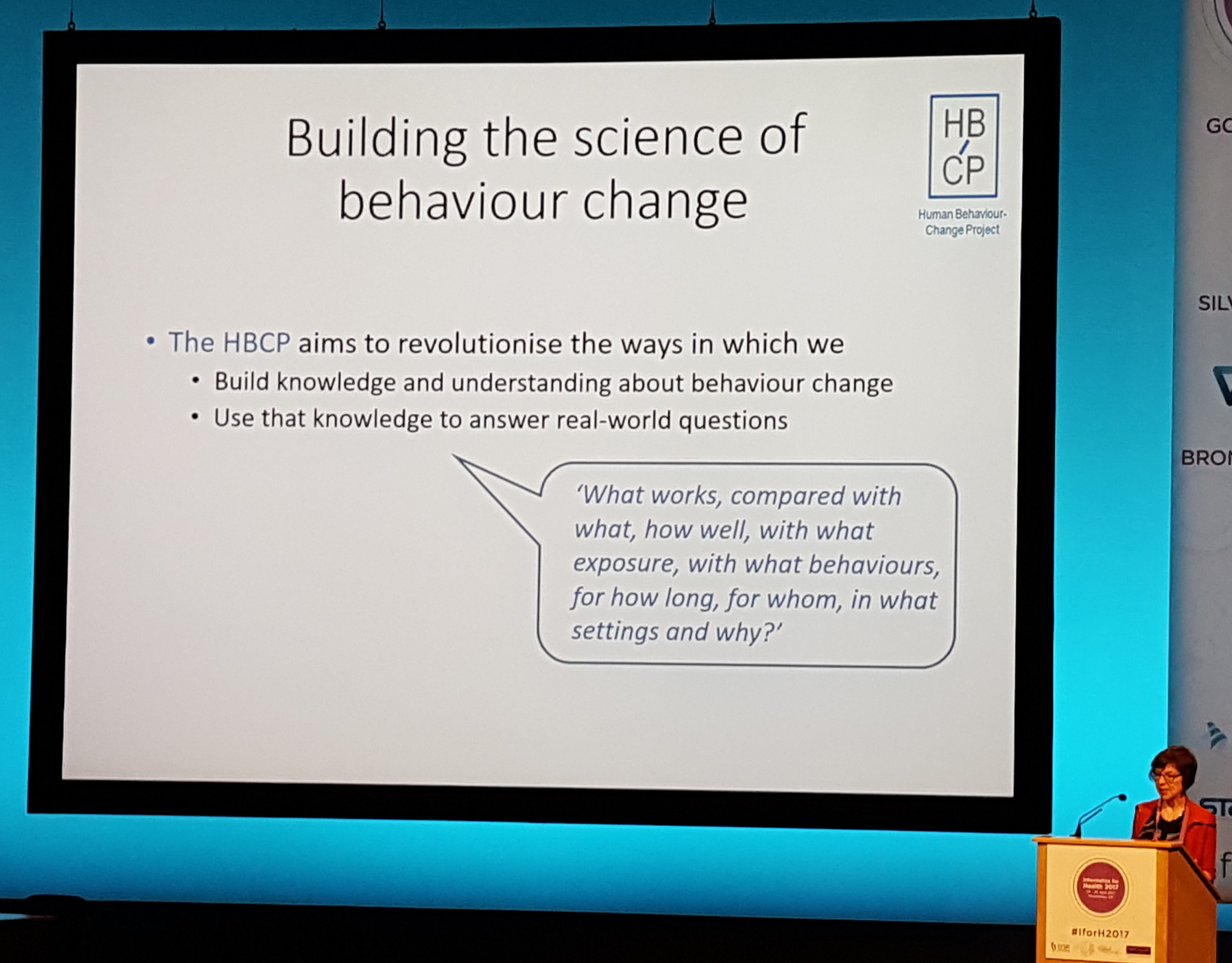
It’s impossible to ignore the proliferation of information technology in all aspects of everyday life with the healthcare environment being no exception. Informatics for Health 2017 brought together leaders in the field performing cutting edge research into how we can use information technology in all kinds of healthcare settings as well as in medical research. One of the overarching messages was that the use and re-use of healthcare data could revolutionize the understanding of human health and disease with the phrase ‘data saves lives’ prominent throughout the conference.
Gaining the public’s trust and developing the informatics workforce
Many of the sessions were focused on the work that is being carried out in the UK, specifically the North of England, which has become a hub for informatics research with projects such as Connected Health Cities headed up by John Ainsworth. In a panel session, he described the main aims of the project which center on the use of information technology to improve health services for patients in Northern England. Another key aim of the project is to establish the public’s trust which will allow researchers to use their data. In his talk during one of the early panel sessions, Iain Buchan also highlighted the importance of obtaining trust from participants. Such trust is often won by demonstrating how the results of the research will be of benefit to the patient population, and as such tends to be easier to obtain from a smaller community of patients who will be able to see the direct benefit of the research to their community.
A number of sessions and talks also highlighted the importance of the workforce, made up of those working in both discovery science and the healthcare setting. Martin Bardsley spoke about the need to ensure that we have enough informatics experts and analysts who can handle and analyze healthcare data. Once the research is being put into practice it’s also imperative that the workforce on the front-line of healthcare is on-board with the implementation of the research.
The use of informatics in healthcare: from patients to research and back again
A recurring theme at the conference centered around a circular model that has been proposed in a recent article in the Journal of the American Medical Informatics Association which summarizes how informatics can and should be used in medicine. The model puts the patient at the start and the end of the circle; with data collected during their care being used in research leading to the generation of new knowledge which is then fed back into the system leading to changes in healthcare policy, thereby improving the care that the patient experiences. In the first of the plenary talks, Riccardo Bellazi of the University of Pavia, discussed one of the key considerations in this circle; the variety observed in biomedical big data and how this can be harnessed in translational and clinical research as well as in the care of patients. This large variety comes from the sheer quantity of data that is now being collected and methods are required to deal with data on this scale at every stage, including data storage, integration and analysis.

In another of the plenary talks, Frank van Harmelen of Vrije Universiteit Amsterdam spoke about how linked data can improve healthcare systems. There has been steady progress in the linking of data-sets on the web to create data networks that contain billions of facts and rules that can be used to find information very quickly. Despite these advances, such systems are not so common in the healthcare setting. Professor van Harmelen presented some ways that these data networks could be used in healthcare, for example in the organization of data on FDA approved drugs including side effects and adverse reactions. From his presentation, it’s clear that there is some way to go before these ideas can be harnessed fully in the healthcare setting and there is real scope for improvement in the flow and organization of health information.
Another of the keynote talks was given by Susan Michie of University College London who presented her work on the Human Behavior-Change Project, which aims to develop methods for systematically analysing human behavior and how this can affect health. This project is an example of the potential power of information technology in medical research as it will build an Artificial Intelligence system to analyze the global literature and extract information on human behavior in order to generate evidence that will then inform researchers, policy makers and clinicians.

The final keynote speaker, Sally Okun, rounded off the conference with a talk focusing on health technology from the patient perspective. She is Vice President for Advocacy, Policy and Patient Safety at PatientsLikeMe, an online patient centered research network. The network currently has around half a million users and stores information on each individual in a similar way to an electronic health record. One of the future aims of the network is to provide a ‘digital avatar’ for each patient which can be used for decision making, for example for selecting treatment options, by considering all of the information that is stored on that person. It was fitting to end the conference with a talk focusing on how patients can directly benefit from the use of information technology, which is the ultimate driving force for the research being carried out in the medical informatics field.
Comments